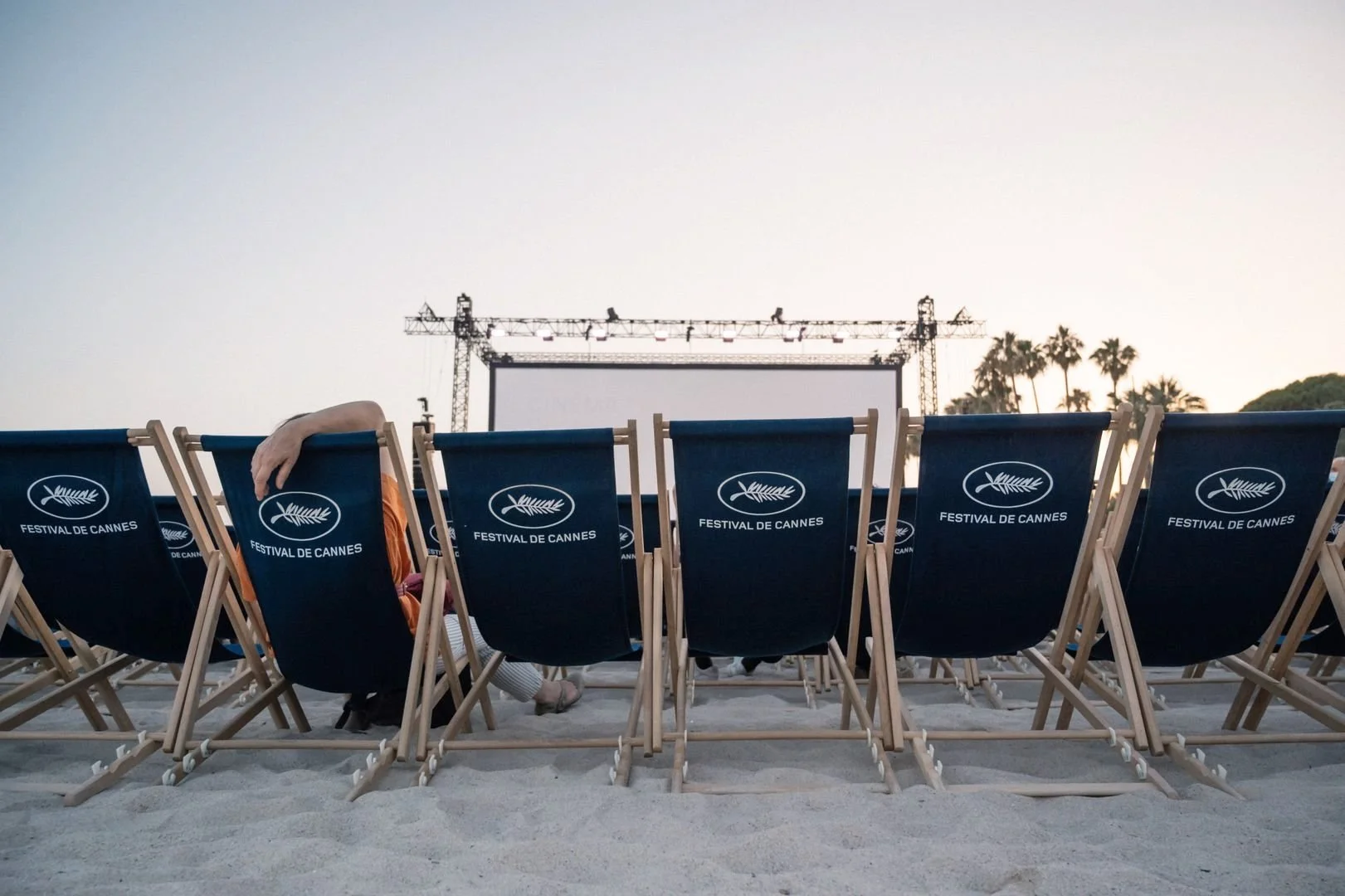Cinegirl at Cannes 2022: The Riviera’s Red Carpet Returns
Cannes’ first fully operational festival in three years saw attendance of industry and press return to pre-pandemic levels. The same meteoric rise, however, cannot be applied to gender and minority representation across the festival’s film programming, including the Official Competition.
In an all-singing, all-dancing homage to the cult of the summer blockbuster—to which Tom Cruise is no stranger—the 75th edition of the Cannes Film Festival opened with a dazzling red carpet premiere of TOP GUN: MAVERICK, complete with jet plane red carpet flyover. The overtly old-school Hollywood aesthetic of the festival’s opening night was emblematic of festival director Thierry Fremaux’s promise that, after the heartache and uncertainty of the pandemic years, Cannes’ diamond jubilee would herald the triumphant return of cinema.
From my first day on the ground, the feeling of anticipation ahead of screenings on the croisette was palpable. Audiences and film industry professionals alike had high hopes for what the festival had to offer, but more than anything, were happy to be back to business as usual - not only in theatres, but on the beach, wandering Cannes’ innumerable winding cobblestone streets, and in the town’s charming cafes and bars which teem with reunions and festival gossip.
In a similar (disappointing) vein to years past—during which the festival’s executives have paid lip service to diversity and representation that has failed to materialise in the festival’s programming—of the twenty four films in Cannes’ Official Competition, four were directed by women. As is my habit and my prerogative, I made a point of seeking out these films, and found in them some of my favourite cinema of this year.
LES AMANDIERS
Directed by Valeria Bruni Tedeschi
Italian filmmaker Valeria Bruni Tedeschi, who won an Un Certain Regard jury prize at Cannes in 2007 for Actresses, before returning to compete for the Palme D’Or in 2013 with A Castle In Italy, makes her third outing on the Croisette with Les Amandiers. Transporting audiences to the rainy kerbside bistros of 1980s Paris, Tedeschi’s intuitively assembled cast of actors turn in a collectively heart-rending and angst-fuelled performance, as a young troupe of actor hopefuls who have been accepted to study at the prestigious theatre school of Patrice Chéreau. The brilliant screenwriting—of female collaborators Agnès de Sacy, Caroline Deruas Peano, Noemie Lvovsky and director-screenwriter Tedeschi—weaves together stories of fast friendships, love and loss, and the trials and tribulations so keenly felt by the young in a masterful emotional tableau that will not fail to pull at your heartstrings.
UN PETIT FRERE
Directed by Léonor Serraille
Serraille won Cannes’ Camera d’Or with her debut feature, Montparnasse Bienvenue, an Un Certain Regard entry in 2017. Returning to Cannes with Un Petit Frère, Serraille’s poignant and insular family drama centres on Rose, a young mother of two emigrating from the Ivory Coast to late-1980s Parisian suburbia. The bond Jean and Ernest share with their mother is insoluble, and her wish for them to be the best they can be shines through even her most destructive tendencies. A sensitively wrought story spotlighting the unsung history of 20th century immigration and racial struggle, emotionally attuned performances from Stephane Bak (Jean) and Ahmed Sylla (Ernest) generate a rapt viewing experience that felt all too fitting to experience at Cannes.
METRONOM
Directed by Alexandru Belc
Director Alexandru Belc transports audiences to a romantically rendered 1970s Bucharest, seven years into the reign of Ceaușescu’s authoritarian regime. Ana (Mara Vicol), 17, dreams of love and an alternative future. One night, she and her young friends decide to send a letter to Metronom, the musical program which Radio Free Europe broadcasts clandestinely in Romania. When the Romanian Securitate apprehend the group, the fog of authoritarianism sharpens, and a fatal flaw in Ana’s romantic worldview is revealed - as is the unassuming resolve of her convictions. Mara Vicol's captivating lead performance as the disillusioned but quietly headstrong Ana makes for a rapt emotional ride, accentuated by Tudor Vladimir Panduru’s vibrant cinematography. A dreamy seventies-inspired lo-fi soundtrack adds to the nostalgic atmosphere in this stunning and heartfelt social comment.
THE SILENT TWINS
Directed by Agnieszka Smoczynska
A dramatic and inventive retelling of an astonishing true story, Letitia Wright and Tamara Lawrance star as identical twins June and Jennifer Gibbons, who shut out the world in favour of a world of their own with a stringent vow of silence that delivered them into the hands of the UK’s cruel judicial system. The pacy drama of this feature is punctuated by fittingly off-kilter stop-motion animation sequences, which illustrate some of the more bizarre stories written by the twins that belatedly drew their story into the spotlight.










